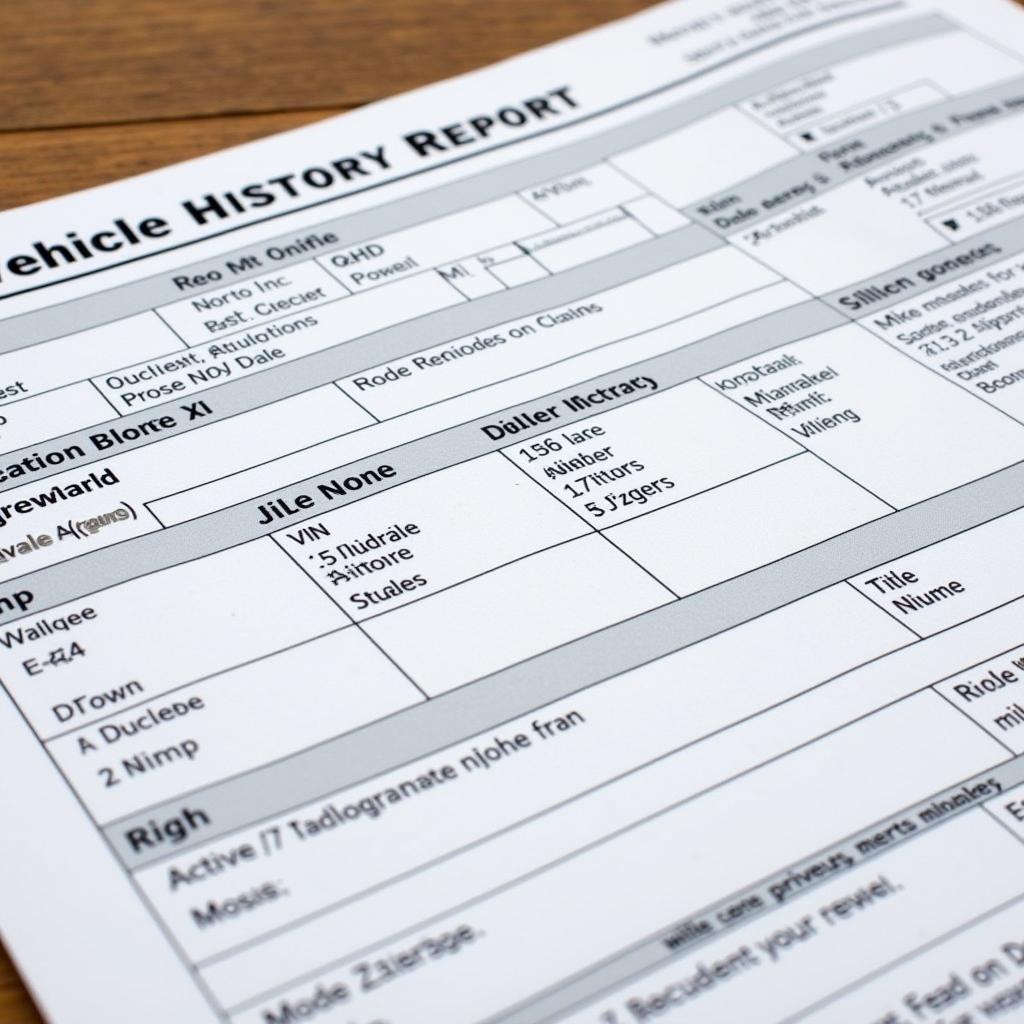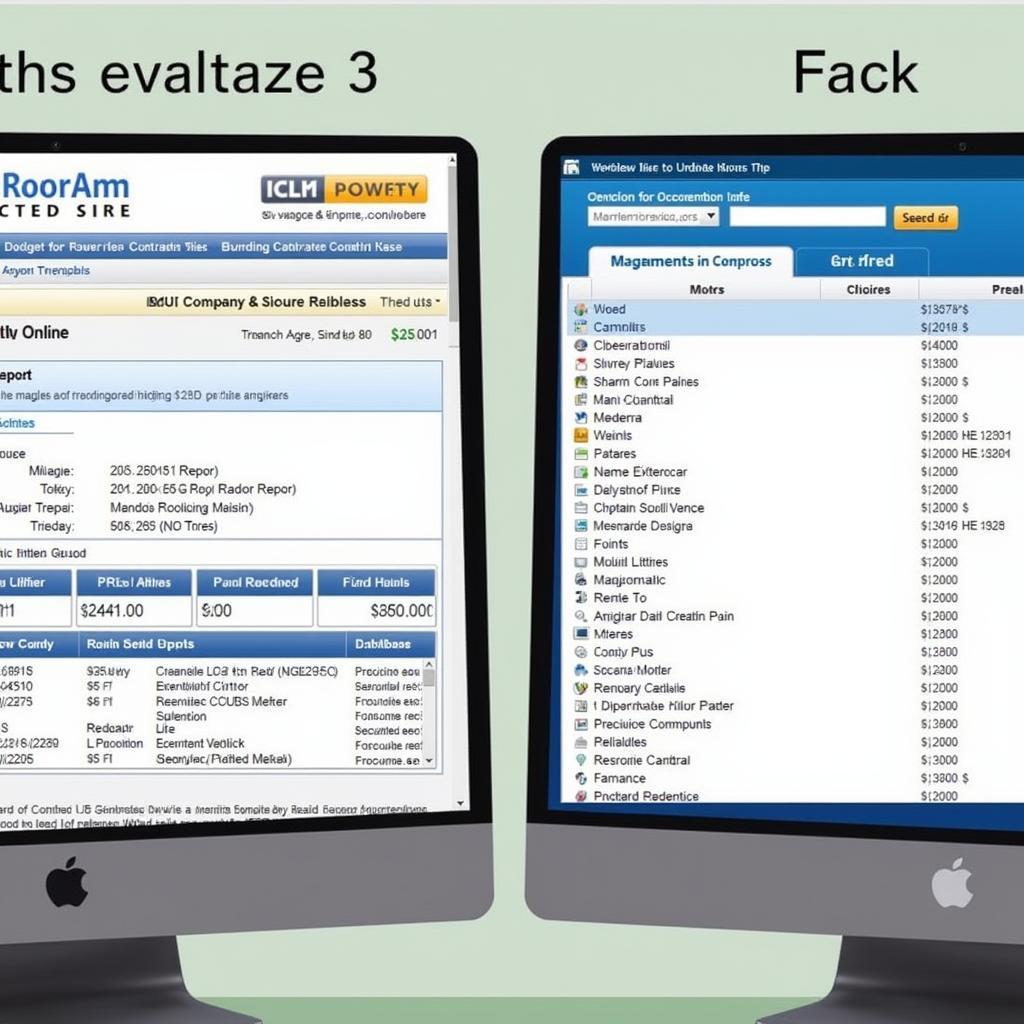Knowing How To Check Car Details By Its Number is crucial for anyone involved in buying, selling, or even just maintaining a vehicle. This simple process can reveal a wealth of information, protecting you from potential scams and ensuring you’re making informed decisions about your car.
Accessing vehicle information through its number, often referred to as the Vehicle Identification Number (VIN) or registration number, allows you to unveil the car’s history, specifications, and potential issues. Whether you’re a seasoned car enthusiast or a first-time buyer, understanding this process is an essential skill in today’s automotive landscape. Learn how to find car registration details and uncover crucial information.
Decoding the Secrets: Unlocking Car Details with the Vehicle Number
There are several ways to check car details using its number. These methods vary in the information they provide and the accessibility they offer. Let’s delve into the most common and effective approaches.
Using Online Vehicle History Reports
Several reputable online platforms specialize in providing comprehensive vehicle history reports. These reports typically require the car’s VIN or registration number and offer a detailed overview of the car’s past, including accident records, title information, mileage history, and even previous owners. This is often the most thorough way to get a complete picture of a car’s background.
Government Databases and Resources
Many countries provide public access to vehicle information through government-run databases. These resources may offer basic details like registration status, MOT history, and vehicle specifications. While not as comprehensive as paid vehicle history reports, they can still provide valuable insights, especially when checking for outstanding recalls or legal issues. For further details on retrieving your car’s information, check out how to get car registration details.
Manufacturer Websites and Dealerships
Car manufacturers and dealerships often have internal systems that can access vehicle details using the VIN. This can be particularly helpful if you’re looking for specific information related to warranties, service history, or recalls. Contacting a dealership or visiting the manufacturer’s website can provide you with this specialized information.
 Checking Car Details Online via Government Website
Checking Car Details Online via Government Website
Mobile Apps for Car Details
Several mobile applications are designed to quickly access vehicle information using the VIN or registration number. These apps often provide a summarized version of the car’s history and can be a convenient way to check basic details on the go. However, it’s crucial to verify the credibility of the app before relying solely on its information.
What Specific Details Can You Find?
Checking car details by its number can reveal a wealth of information. Here are some key details you can expect to find:
- Vehicle Identification Number (VIN): The unique identifier of the car.
- Make and Model: The specific manufacturer and model of the vehicle.
- Year of Manufacture: The year the car was produced.
- Engine Size and Type: Specifications about the car’s engine.
- Transmission Type: Whether the car is automatic or manual.
- Mileage History: Recorded mileage readings over time.
- Accident History: Any reported accidents involving the car.
- Title Information: Details about the car’s ownership and title status, including any liens or salvage titles.
- Service History: Records of maintenance and repairs performed on the car (often available through manufacturer databases or dealerships). Knowing what to buy to detail your car is as essential as knowing its history.
 Detailed Vehicle History Report
Detailed Vehicle History Report
Want to understand your car’s details better? Check out how to know my car details for a comprehensive guide.
Why is Checking Car Details Important?
Checking car details provides several crucial benefits:
- Avoiding Scams: Verifying the car’s history can protect you from purchasing a stolen vehicle or one with hidden damage.
- Informed Purchase Decisions: Knowing the car’s history allows you to make an informed decision about its value and potential reliability.
- Negotiating Power: Having access to detailed information can give you leverage when negotiating the purchase price.
- Maintenance Planning: Understanding the car’s service history can help you plan for future maintenance and repairs.
- Insurance Purposes: Accurate vehicle information is essential for obtaining appropriate car insurance coverage. Learn how to check car insurance policy details by policy number to manage your insurance effectively.
How to Avoid Common Mistakes When Checking Car Details
- Verify the Source: Ensure the information comes from a reputable source, whether it’s a government database, a trusted vehicle history report provider, or a manufacturer’s website.
- Double-Check the VIN: Always confirm that the VIN you’re using matches the car you’re inspecting physically.
- Be Wary of Discrepancies: If you notice any discrepancies in the information provided, investigate further before making any decisions.
 Comparing Car Details on Different Websites
Comparing Car Details on Different Websites
Conclusion
Knowing how to check car details by its number is a powerful tool for any car owner or prospective buyer. By utilizing the various resources available, you can unlock crucial information about a vehicle’s past, present, and potential future, empowering you to make informed decisions and protect yourself from potential pitfalls.
FAQs
- What is a VIN? A Vehicle Identification Number (VIN) is a unique 17-character code that identifies a specific vehicle.
- Where can I find the VIN? The VIN is typically located on the dashboard, driver’s side doorjamb, or vehicle title.
- Are vehicle history reports worth the cost? Yes, they provide comprehensive information that can save you from costly mistakes.
- Can I check car details for free? Yes, some government databases offer free access to basic vehicle information.
- What should I do if I find discrepancies in the car’s history? Investigate further and consult with a trusted mechanic or legal professional if necessary.
- How often should I check my car’s details? It’s a good idea to check your car’s details annually or before making any major decisions about the vehicle.
- What if the car I’m checking doesn’t have a VIN? Older vehicles may not have a VIN. In such cases, you may need to rely on other identifying information like the registration number and engine number.
Common Situations and Questions
- Buying a used car: Always check the car’s details before purchasing to avoid hidden problems.
- Selling a car: Providing a vehicle history report can increase buyer confidence and potentially fetch a higher price.
- Insurance claims: Accurate car details are crucial for insurance purposes.
- Checking for recalls: Regularly check your car’s details to stay informed about any safety recalls.
Further Information
For more helpful guides on car-related topics, check out our articles on how to find car registration details and what to buy to detail your car.
Need further assistance? Contact us via WhatsApp: +1(641)206-8880, Email: [email protected]. We have a 24/7 customer support team.

Leave a Reply